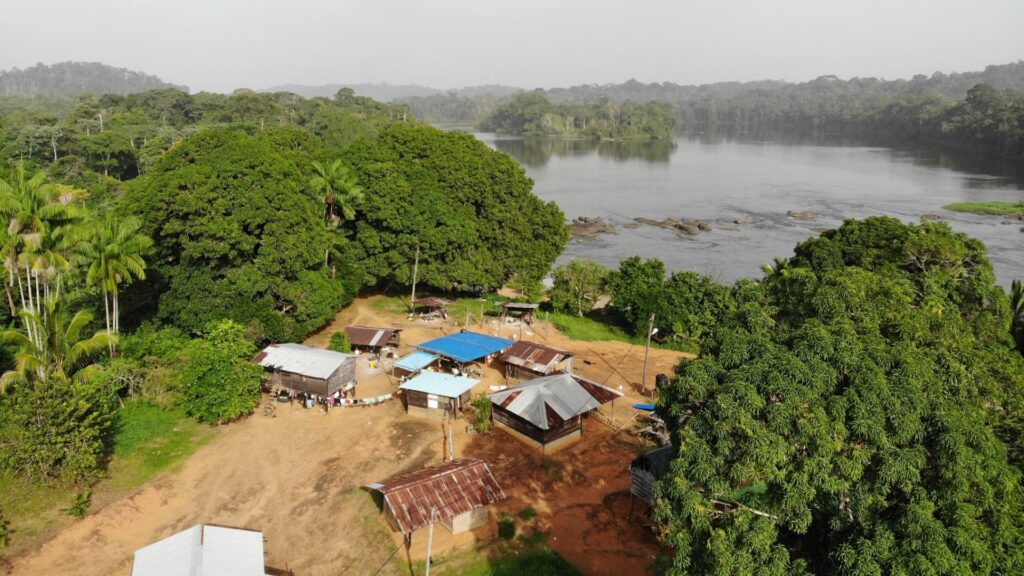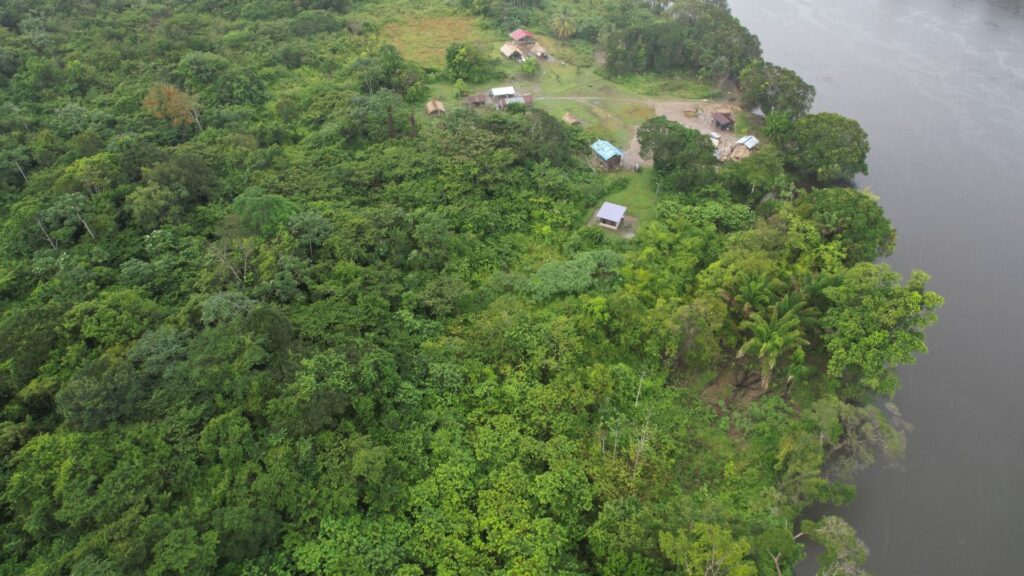Dijon Koemapu from Apetina looks gloomy. Cassava cannot be harvested. Due to the persistent drought, the planting failed. This is the image for many families in Apetina, an indigenous village in the southeast of Suriname, inhabited by the Wayana community. Cassava is the staple food for many indigenous and tribal peoples.

Photo: MULOKOT Foundation
After planting, it takes a year and a half before the harvest can take place. Unfortunately, due to the consequences of climate change, including long periods of extremely high temperatures, less and less cassava is being harvested. Food security is therefore not guaranteed.
Koemapu says that the cassava planting had already failed two years ago. This was because the agricultural plots were under water. This year there will be no harvest again, but this time due to extreme drought. This makes the soil infertile. The lack of cassava also puts certain traditions and customs at risk. For example, Kasiri, an alcoholic drink of the natives that is drunk on special occasions, cannot be made.
The Kasiri is prepared by grating the roots of the cassava plant and soaking them in water. This mixture is then pressed into a matapi, a braided tube, after which the juice is collected. The sap is then boiled to extract the toxins. The mixture is then fermented and strained into the desired final product. In addition to Kasiri, the preparation of cassava bread is also at risk. The remaining flour in the matapi is used to bake cassava bread. Normally this is consumed almost every day, often with the usual “Pepre Watra.”

The effects of climate change on ancestral knowledge
According to the United Nations, 80 percent of the world’s total biodiversity is found in indigenous communities. Koemapu therefore finds it regrettable that the indigenous people suffer so much from the consequences of climate change.
“As indigenous people we protect nature. We have lived in harmony with the forest since the beginning of humanity. We contribute the least to climate change and yet we are among the groups most affected,” Koemapu expresses his frustration.
He explains that people are now forced to look for other locations for the agricultural plots. “With our ancestral knowledge, we have known for years exactly where the fertile lands are. Due to climate change, these lands are now flooded or become infertile due to extreme drought. So we now have to look for other land, which is often kilometers further away than we are used to,” he explains.
Traditional wisdom is increasingly suffering from the consequences of climate change. Koemapu says that at the beginning of the dry season, around July/August, the Wayanas heard a certain sound coming from a butterfly-like creature. When they heard the “ding-ding-ding” sound they knew that the dry season was coming. This meant that the agricultural plots had to be weeded and then cut open. At the onset of the wet season, for example the little rainy season in December, the sound of a certain species of frog could be heard. “However, due to the changing weather patterns, this has all been thrown into disarray,” Koemapu said.
He also talks about the water level in the river. According to Koemapu, there is a clear difference with the same period last year. The water is considerably lower this year. But the warmth and heat of the sun are also more extreme than last year, according to Koemapu. “This is felt by almost everyone in the village, people are complaining because they have to work in the bright sun, but the temperature is unbearable.”
This story was published by Srherald.com with the support of the Caribbean Climate Justice Journalism Fellowship, which is a joint venture between Climate Tracker and Open Society Foundations.